'I want my homeless brother to be forced to get help'
- Published
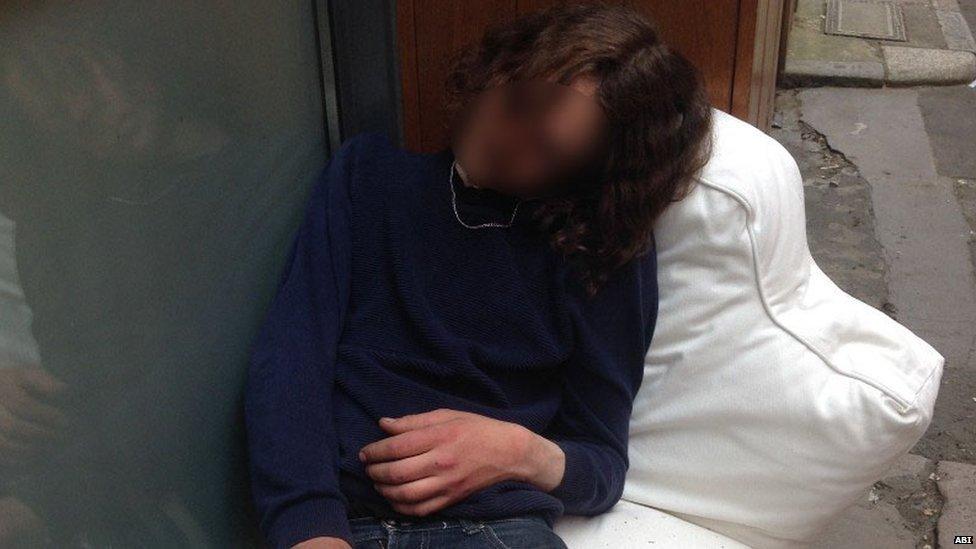
Abi is desperate to get help for her 28-year-old brother who has been sleeping rough since February.
Patrick, an aspiring musician, has been diagnosed with schizophrenia and bipolar disorder.
Abi says he's been offered help countless times but he always refuses, now she wants that help to be forced upon him.
An expert has told Newsbeat there are many homeless people like him in the UK being "failed" by the system.
Under the Mental Health Act, in certain circumstances someone suffering from a serious mental illness can be taken to hospital against their will.
But according to former NHS psychiatrist, Dr Philip Timms, many services simply aren't willing to get people sectioned from the street.
He says in most parts of the UK there is a "scandalous" reluctance to use this power in the homeless community.
Others argue that a decision to take away someone's free will "is a really serious thing".
Abi and Patrick's story
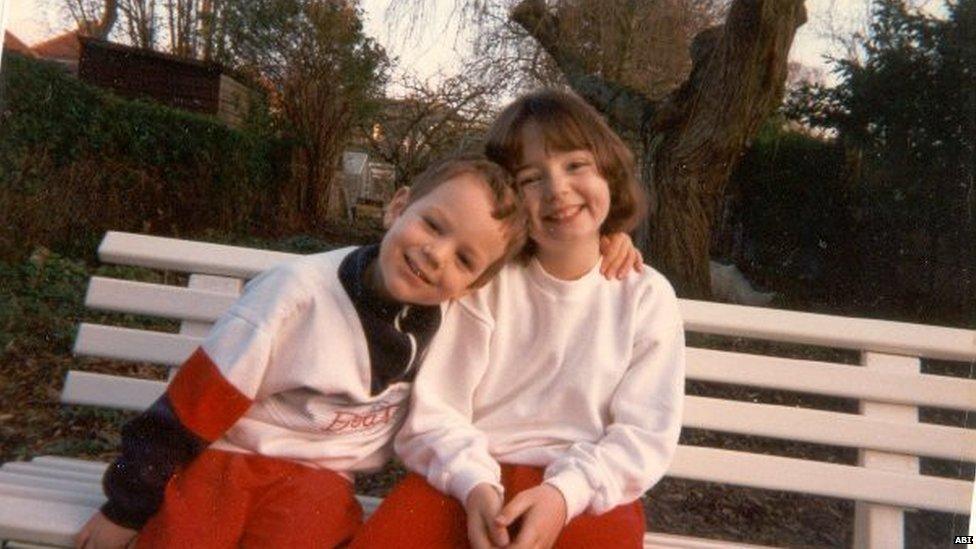
Patrick loves music and song-writing. He's also published a book of poetry.
"A year and a half ago he was still gigging," Abi explains.
"He'd be performing in the venues around here, not begging outside of them."
He used to spend his evenings writing and recording before, Abi says, he turned to drink and drugs to try and deal with his problems.
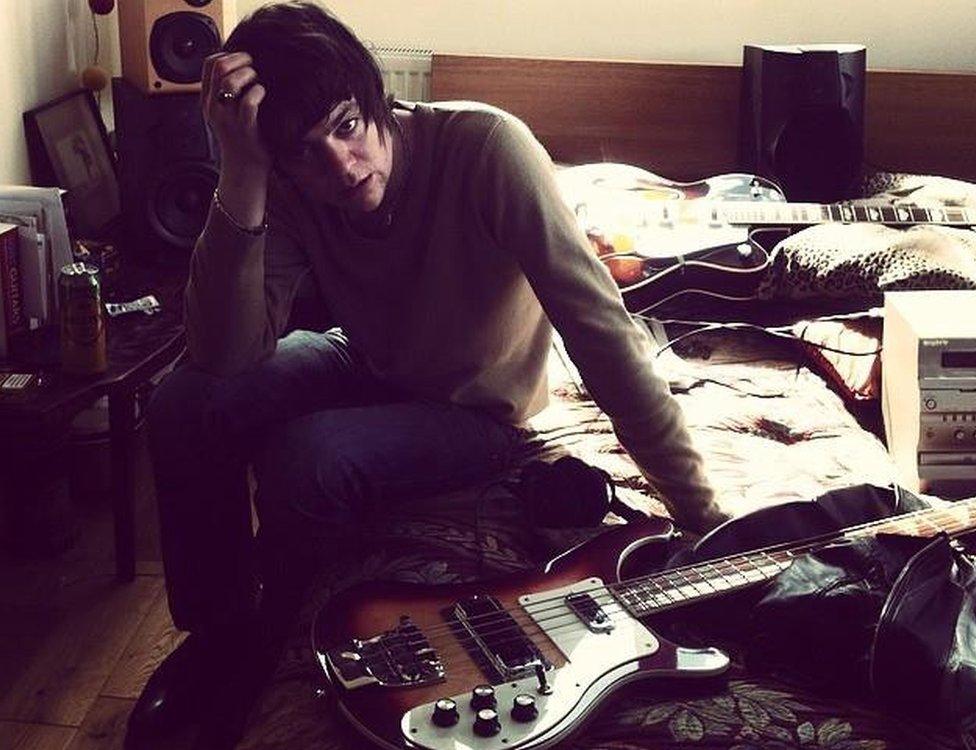
Abi says earlier this year Patrick sold his guitar to buy drugs
According to his sister, Patrick has a history of psychotic episodes and suicide attempts.
She also believes he is now addicted to heroin and crack.
And she can go for weeks without seeing him, not knowing if he's alive or dead.
"No-one wants to think of their brother or sister sleeping on the streets," Abi says.
"Last time I saw him he had a big red mark on his forehead, he said people had been kicking him in the head.
"He had blisters all over his hands. Someone had set fire to his mattress and he'd burnt his hands.

Patrick used to tweet about his mental health problems
"This is something that has happened due to years and years of failure to address his mental health issues.
"Somehow sleeping on a piece of cardboard in a doorway is easier for him than accepting help.
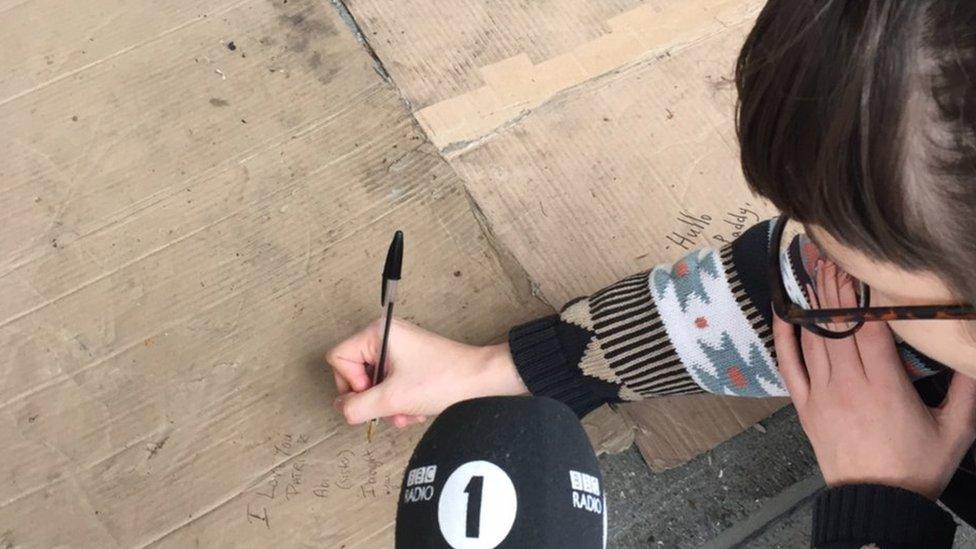
"I love you Patrick. p.s. I brought you some socks" - Abi writes a note for her brother on his cardboard bed
"No person in his right mind would choose this way of life, but Patrick is not in his right mind.
"We're all very scared. I don't see how this can go on for much longer."
Abi believes trying to get her brother sectioned is the only way she can help him.
She's contacted charities, social services and the police but says she's come up against brick wall after brick wall.
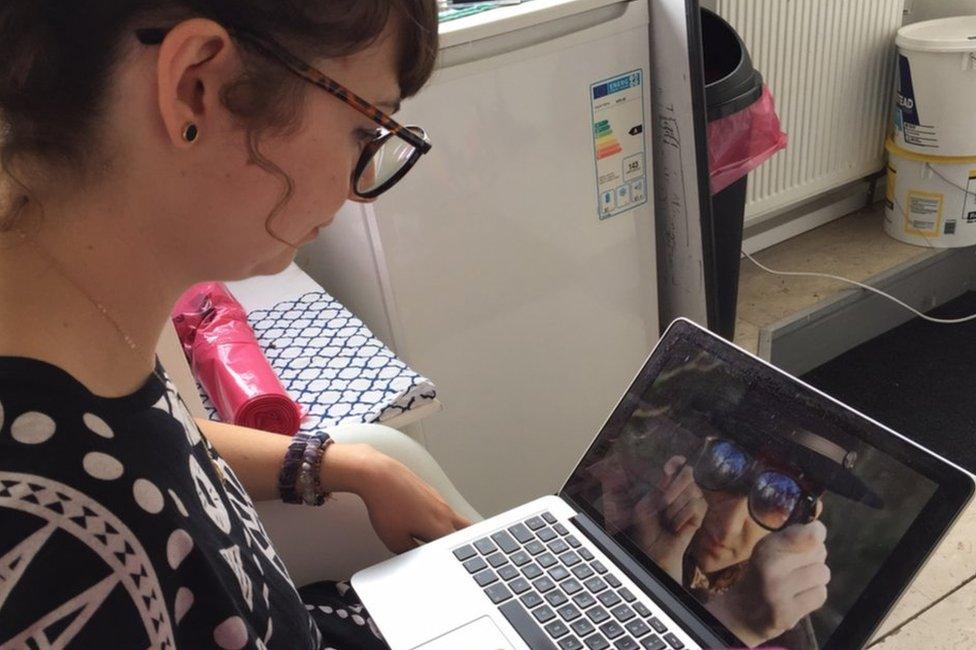
Abi watches one of her brother's music videos
'It's a scandal'
Dr Philip Timms assessed homeless people with serious mental health issues for 20 years in south London.
Where necessary, he arranged to have them sectioned.
But he warns that organisations are not always willing to make it happen which is failing vulnerable people.
"This is something that in many areas people aren't used to doing so they assume you can't do it.
"And the fact it is that it is uncomfortable... I don't like assessing people at 3am under a rainy railway arch, but it's necessary.
"Unless we do that people like Patrick will continue to sleep out and suffer from mental health problems and addictions."
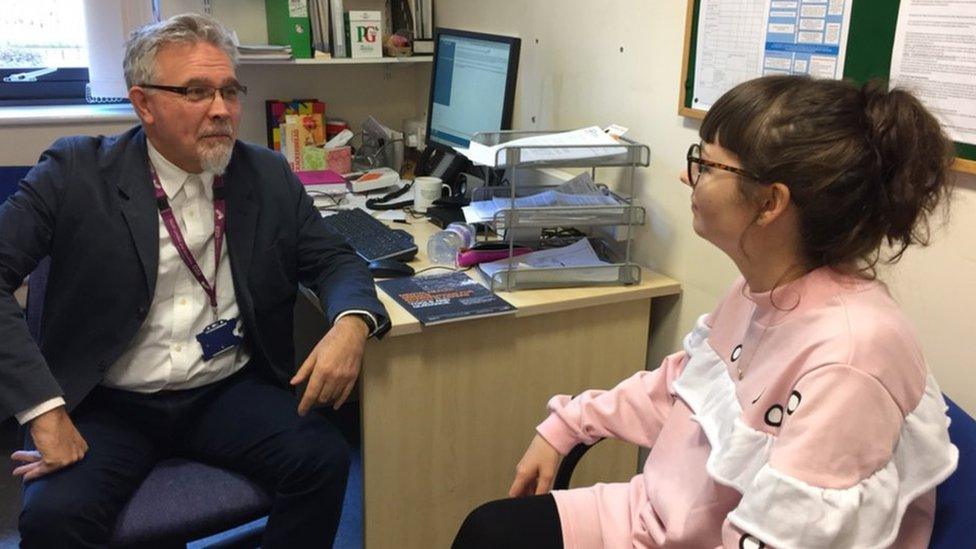
We took Abi to meet Dr Philip Timms
Dr Timms explains that in most cases arranging to have a homeless person sectioned will involve co-ordinating the police, social services and medical staff so they are all in the place at the same time.
And if there are no hospital beds available, the whole process will be for nothing.
"You have a person with a severe mental health problem living on the street and they will die on the street unless something is done about it.
"That is a form of medical emergency. It's scandalous that we leave very vulnerable people on the streets for months, years and sometimes decades."
London homeless charity St Mungo's says that in one of its projects only half of those referred for a Mental Health Act assessment received one.
Newsbeat went out with Abi to visit the places Patrick has been sleeping
Forcing treatment isn't the answer
There are some though who feel sectioning is not the solution for people like Patrick.
We spoke to an anonymous blogger who uses the Twitter name @Sectioned_ and was detained under the mental health act five years ago.
She tells Newsbeat that the experience was so bad that she now has post-traumatic stress disorder.
She thinks Abi's attempts to help Patrick are misguided.
"I feel a lot of compassion for Abi," she tells Newsbeat. "It's heartbreaking when somebody you care for is suffering so much.
"But it's really important to remember that people with serious mental illness... we are full human beings too.
"If you have a relative with type two diabetes and they're eating lots of sugary foods or not taking care of their health, you can't just say, 'This really worries me I'm going to force you to have treatment.'
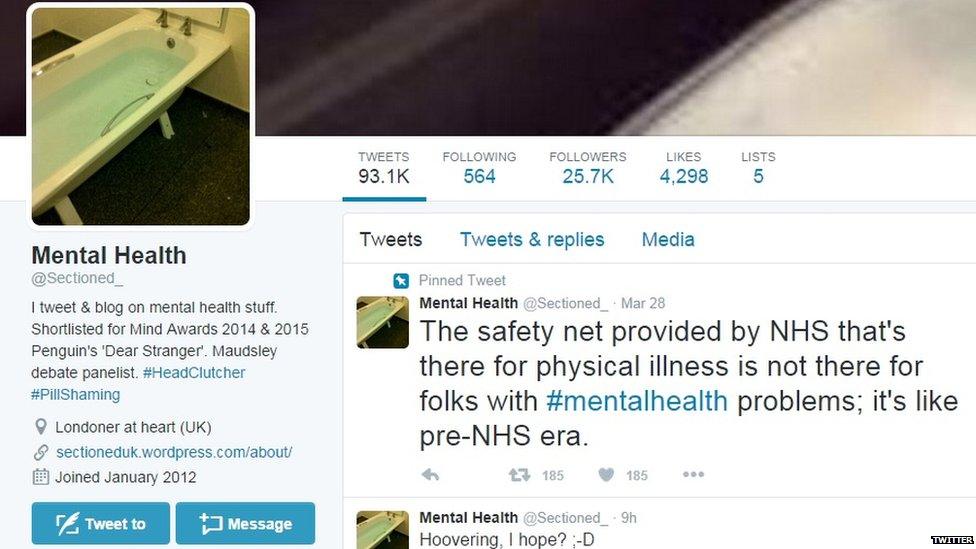
"Sectioning is a really serious thing," she insists.
"In my case, had people sat down and talked to me and explained things to me they could have used persuasion and I wouldn't have needed to be treated in hospital and definitely not treated with force.
"Serious mental illness is common, there are a lot of us. We need help and support in the community to manage our conditions, not to be locked up."
Newsbeat contacted the Department of Health for a statement but was told there was "no comment".
You can get more support and tips about mental health issues by looking at these BBC Advice pages.
Find us on Instagram at BBCNewsbeat, external and follow us on Snapchat, search for bbc_newsbeat